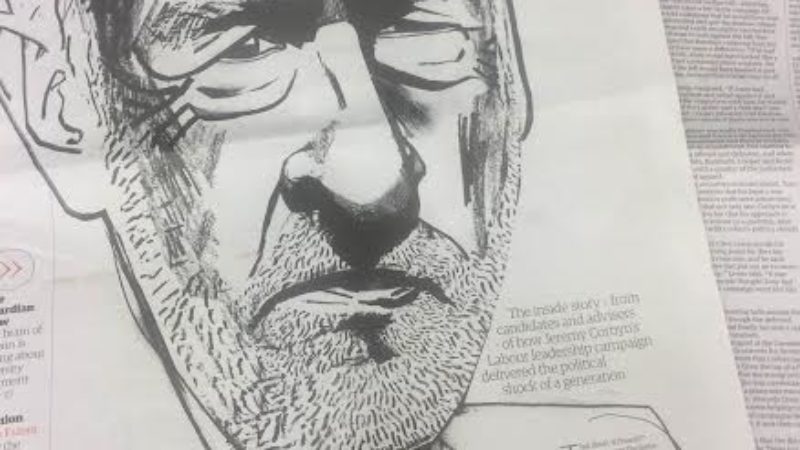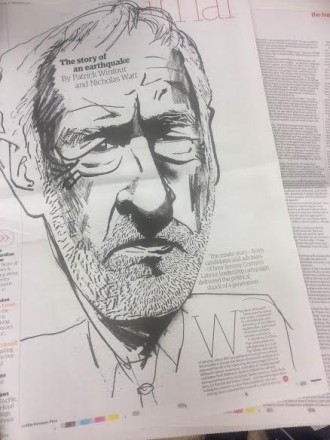

It already might seem like a summer from the distant past, but Labour’s leader contest only came to a close thirteen days ago. Patrick Wintour and Nicholas Watt have taken look at Jeremy Corbyn’s phenomenal campaign in today’s Guardian. They remind us of the desperate attempts to put a halt to his success and how his meteoric rise to the leadership wasn’t even anticipated by his supporters .
Here are five things we learned from ‘The Corbyn Earthquake’:
1) Corbyn supporters were sceptical about whether he should stand – At the beginning of the summer, long before Corbyn secured his place on the ballot, some on the left weren’t sure he should stand at all. Like most others, they didn’t foresee Corbyn’s huge success. They were in fact more worried about the opposite happening; what would happen to Corbyn and the left if he stood and failed? “There was a bit of a split, between those who thought that if we stand and get drubbed and lose, it will basically mean the right of the party would say: ‘Get back into your box – you’ve had your say, you’re finished, go away, you came last. You got Ed in, we lost the election, now you’ve come last’ – that was the fear,” Corbyn supporter Clive Lewis MP said.
2) There was pressure on the two women candidates to drop out to help Burnham – It was rumoured throughout the summer that some thought Liz Kendall and/or Yvette Cooper should drop out of the contest to help Burnham catch up with Corbyn. This seems to have been grounded in truth. As the Islington North MP’s campaign continued to pick up pace, Kendall backer, Chuka Umunna rang Burnham tell him that their numbers showed he was the only candidate who could “stop” Corbyn. When this failed a small group of “party grandees” encouraged Burnham, Cooper and Kendall to drop out of the race in the hope that it would become void.
3) If Burnham had voted against the welfare bill, supporters think he’d be Labour leader now – Six days before Harman made her first public indication that Labour would abstain on the welfare bill, she hinted at the idea in a PLP meeting. When Burnham questioned her, one person present said she was “unspeakably rude” to him. Cooper too warned Labour’s interim leader of the dangers of taking this position and said it would benefit Corbyn. But they fell in line. Some Burnham supporters think he was right to remain loyal to the party. But those from the Kendall camp believe that had Burnham voted against the bill “he would have been de facto leader of the Labour party that day”.
4) Corbyn’s team developed a slick campaign – While his rivals were scrambling to dint his support, Corbyn’s team were developing their own campaign. Thanks to his tech guru Ben Soffa, Corbyn was the only of the leadership candidates to embed the £3 registration process into their campaign website. They also had an app so volunteers could make calls to potential supporters from their own homes. It’s also clear that they were a close knit team; Kat Fletcher who headed up the volunteering team used £2,000 she won by betting on a Corbyn victory to pay for volunteers to go to Labour conference this weekend.
5) There are no hard feelings – Despite all of this, Kendall said that each of the candidates continue to respect each other on a personal level. Although they clearly differ ideologically and will most likely clash over policy in the future, Kendall noted her rapport with Corbyn. “You get concerned about the person and how it’s going. He didn’t do tactics and neither did I”, she said about the campaign.



More from LabourList
Peers say three-year wait for police probe into Liverpool mayor ‘outrageous’
London mayor elections: Labour urges probe into Tories’ fake driver fines
Cass report: ‘Here’s why politicians should not treat it as gospel’